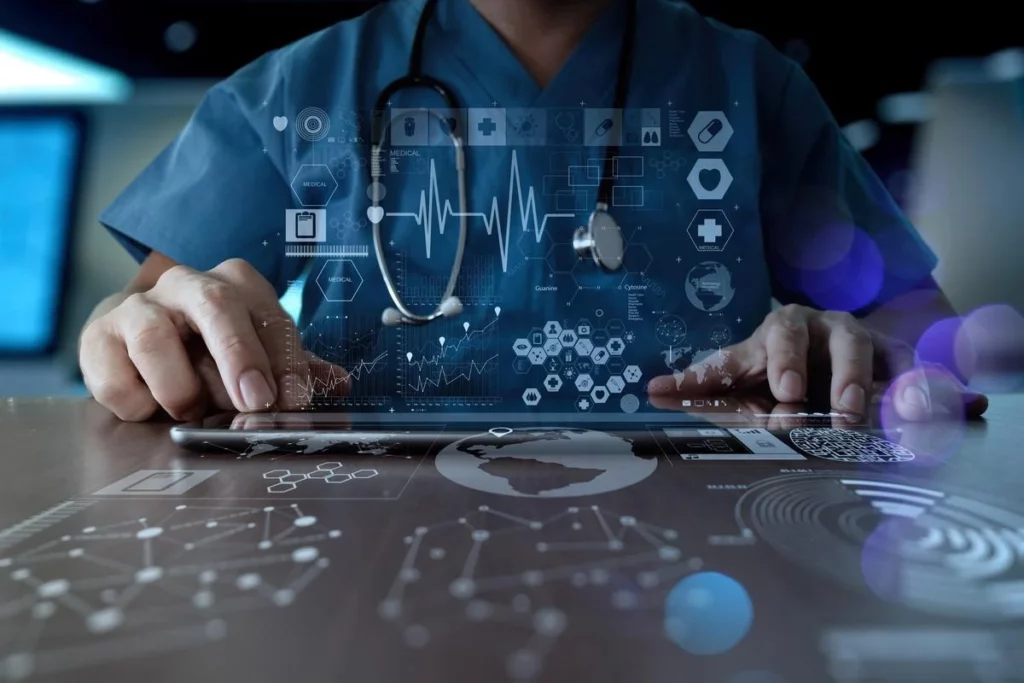In an era of rapid technological advancements, the healthcare industry is witnessing a transformative shift towards more personalized and efficient approaches to wellness. From wearable devices and telemedicine to AI-driven diagnostics, technology is revolutionizing the way we stay healthy. In this article, we explore the exciting innovations shaping the future of health, empowering individuals to take charge of their well-being like never before.
1. Wearable Health Monitors: Your Health on Your Wrist
Wearable devices, such as smartwatches and fitness trackers, have become ubiquitous in recent years. However, the future holds even more sophisticated health monitoring capabilities. These wearable health monitors will go beyond counting steps and tracking heart rate. They will be equipped to measure blood glucose levels, oxygen saturation, and even detect early signs of potential health issues. With real-time data at their fingertips, users can proactively manage their health and make informed lifestyle choices.

2. Telemedicine: Accessing Healthcare Anytime, Anywhere
Telemedicine, or telehealth, is transforming the way healthcare services are delivered. The rise of remote consultations allows patients to connect with healthcare professionals via video calls or virtual platforms, eliminating the need for in-person visits for minor concerns. Telemedicine not only enhances convenience but also extends access to healthcare services, particularly for individuals in remote areas or with limited mobility.
3. AI-Driven Diagnostics: Precision Medicine at Its Best
Artificial Intelligence (AI) is revolutionizing diagnostics by analyzing vast amounts of data and identifying patterns that might be imperceptible to human doctors. AI-driven diagnostic tools can aid in the early detection of diseases and personalize treatment plans based on an individual’s genetic makeup, lifestyle, and health history. This approach, known as precision medicine, holds the promise of more effective and targeted therapies, improving patient outcomes.
4. Health-Tracking Apps: Nurturing Healthy Habits
Mobile apps focused on health tracking are evolving into comprehensive platforms that offer personalized wellness insights. These apps can monitor various health metrics, provide customized exercise routines, suggest nutritious meal plans, and offer mental health support. By fostering healthy habits and offering personalized guidance, these apps empower individuals to take control of their well-being proactively.
5. Virtual Reality in Healthcare: Healing Through Immersion
Virtual Reality (VR) technology is making significant strides in the healthcare sector. From pain management and rehabilitation to mental health therapy, VR offers immersive experiences that can improve patient outcomes and reduce the need for certain medications. VR’s ability to transport patients to tranquil environments or simulate challenging scenarios for therapeutic purposes opens new avenues for holistic healing.
6. Blockchain for Health Records: Enhanced Security and Privacy
Blockchain technology is finding applications in healthcare, ensuring the secure and immutable storage of health records. Blockchain offers decentralized data management, protecting patients’ sensitive information from data breaches and unauthorized access. Patients gain greater control over their health data, allowing them to share it securely with healthcare providers while maintaining their privacy.
7. Nanotechnology: Tiny Innovations with Huge Impact
Nanotechnology is driving breakthroughs in medicine, enabling targeted drug delivery and more precise treatments. Tiny nanoparticles can deliver medications directly to affected cells, reducing side effects and increasing treatment efficiency. Additionally, nanotechnology is paving the way for advanced diagnostics and non-invasive monitoring of health conditions.
8. Robotics in Healthcare: Assisting Medical Professionals
Robots are being increasingly integrated into healthcare settings to support medical professionals. Surgical robots offer greater precision during procedures, leading to better patient outcomes and faster recovery times. Autonomous robotic systems can perform routine tasks, such as dispensing medications and carrying out repetitive laboratory procedures, freeing up healthcare staff to focus on more critical aspects of patient care.
Conclusion
The future of health is intricately woven with technology, unlocking unprecedented possibilities for personalized, accessible, and efficient healthcare. From wearable health monitors and telemedicine to AI-driven diagnostics and robotics, these technological advancements empower individuals to become proactive participants in their well-being. Embrace the future of health, where technology and innovation converge to create a healthier and more resilient world for generations to come.


